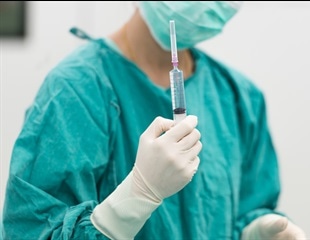generic soloxine ca no prescription

Sedation, together with analgesia, amnesia and muscle paralysis, is the end result of general anesthesia, which is an induced, reversible and controlled loss of consciousness. Sedation, on its own, is the depression of awareness, whereby a patient response to external stimuli becomes limited. Sedation may be minimal, moderate or deep.
Minimal sedation is given only to relieve anxiety, with very little effect on patient awareness, while moderate sedation depresses consciousness, but leaves the patient capable of responding to external stimuli (tactile or verbal). In deep sedation, the patient only responds to painful or repeated stimuli.
In most forms of anesthesia, patients are pre-medicated prior to surgery to help them relax. The most commonly used drugs for this process are benzodiazepines. Other drugs are administered based on the necessities that are unique to that patient. For instance, a patient at risk for gastroesophageal reflux may receive drugs to counter that potential problem. Induction anesthesia is given in general anesthesia with drugs that put the patient to sleep and once these drugs begin to wear off, maintenance anesthesia is administered. Towards the end of the surgery these drugs are stopped and patients are given agents to reverse the effects of the muscle paralysis.
Sedation vs. General Anesthesia
While both sedation and general anesthesia are forms of anesthesia, and sedation is a component of general anesthesia, they are different in several respects. Patients under general anesthesia have a complete loss of consciousness. This means that the patient will not feel, hear or remember anything. In order to achieve this loss of consciousness, a mixture of agents is necessary. In contrast, a state somewhere between being very sleepy, being relaxed in consciousness, and yet not unconscious, characterizes sedation. The patients will not feel pain, but are aware of what is going on around them.
As an advantage, the adverse effects that may be associated with general anesthesia are avoided with sedation. Moreover, patients maintain their natural physiological reflexes and are capable of breathing on their own.
This does not mean, however, that respiratory support may not be needed in some instances with sedation. In fact, some anesthesiologists may prefer general anesthesia, because it allows them to have complete control of the airway, thereby eliminating the need to worry about patient oxygenation. Nonetheless, the recovery period from sedation is typically quicker than with general anesthesia.
Cardiovascular function is usually unaffected or maintained throughout the various stages of sedation. In contrast, it is usually impaired with general anesthesia and careful monitoring is mandatory. In both cases, patients are required to fast several hours prior to their operation. The standard fasting duration is six hours. Clear fluids may be consumed no later than two hours prior to surgery.
Technically, light sedation may be given after a two-hour fast, but this is not recommended, especially in instances where the duration of the surgical procedure is unpredictable and may last for considerably longer than planned and general anesthesia becomes necessary.
References
- http://www.mayoclinic.org/tests-procedures/anesthesia/home/ovc-20163578
- http://www.iow.nhs.uk/Downloads/Patient%20Information%20Leaflets/sedation%20for%20surgery%20-%20Your%20Anaesthetic%20explained.pdf
Further Reading
- All Sedative Content
- Sedatives – What are Sedatives?
- List of Sedatives
- Sedative Dependence
- Sedative Abuse
Last Updated: Jun 18, 2019

Written by
Dr. Damien Jonas Wilson
Dr. Damien Jonas Wilson is a medical doctor from St. Martin in the Carribean. He was awarded his Medical Degree (MD) from the University of Zagreb Teaching Hospital. His training in general medicine and surgery compliments his degree in biomolecular engineering (BASc.Eng.) from Utrecht, the Netherlands. During this degree, he completed a dissertation in the field of oncology at the Harvard Medical School/ Massachusetts General Hospital. Dr. Wilson currently works in the UK as a medical practitioner.
Source: Read Full Article